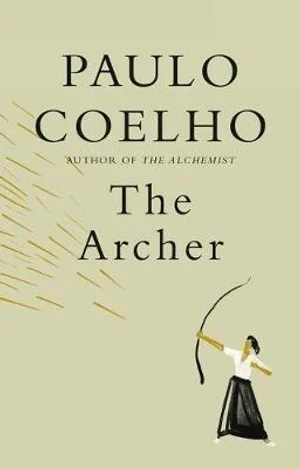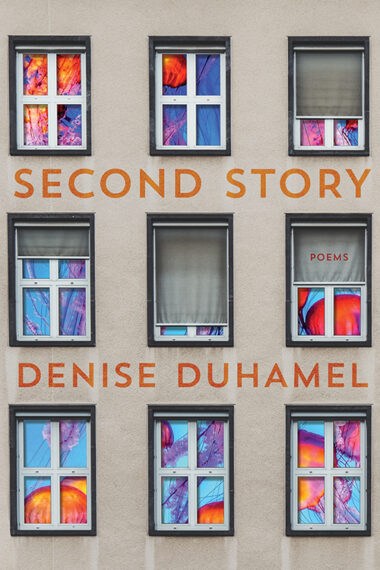 In many of these poems, what begins as a hyper-local calamity–in an alley, a travel lodge, a club–transmogrifies in Mr. Merrill’s hands into sentences where what comes next is determined to flush the subject straight out of its just-tamped-down bed in the tall grass. The reader is shocked into vigilance, which gradually becomes a kind of acute reciprocity, an attention that is not easily achieved in our daily lives.
In many of these poems, what begins as a hyper-local calamity–in an alley, a travel lodge, a club–transmogrifies in Mr. Merrill’s hands into sentences where what comes next is determined to flush the subject straight out of its just-tamped-down bed in the tall grass. The reader is shocked into vigilance, which gradually becomes a kind of acute reciprocity, an attention that is not easily achieved in our daily lives.
Category: Book Reviews
Book Reviews
A review of Love’s Garden by Nandini Bhattacharya
 The author’s style is simple and straightforward, and her use of highly descriptive prose generates excellent dialog and tantalizingly paints her characters as well as the tumultuous events in which they participate. I particularly enjoyed the alliterative flourishes: (“tawny tangy dancing woman”; “she senses sin and shame standing sentry”; “maggoty men”); the challenging vocabulary: (“termagants”; “tumescently proud”); and plastic descriptions: (“fish belly pale inner forearm”; “moon whipped water”; “soda bottle eye glasses”; “ the barbed wires of consolation”).
The author’s style is simple and straightforward, and her use of highly descriptive prose generates excellent dialog and tantalizingly paints her characters as well as the tumultuous events in which they participate. I particularly enjoyed the alliterative flourishes: (“tawny tangy dancing woman”; “she senses sin and shame standing sentry”; “maggoty men”); the challenging vocabulary: (“termagants”; “tumescently proud”); and plastic descriptions: (“fish belly pale inner forearm”; “moon whipped water”; “soda bottle eye glasses”; “ the barbed wires of consolation”).
A review of The Part That Burns by Jeannine Ouellette
 While this memoir chronicles what the author refers to as her “brokenness” as a result of what she endured, it really is a story of healing. Writing this book was a very big part of that process for Ouellette. “Maybe healing, when it happens, is the result of a quantum entanglement, the swirling of a thousand winds. Maybe it comes when you give your daughter your own heart like another stuffed toy she will drag with her everywhere…”
While this memoir chronicles what the author refers to as her “brokenness” as a result of what she endured, it really is a story of healing. Writing this book was a very big part of that process for Ouellette. “Maybe healing, when it happens, is the result of a quantum entanglement, the swirling of a thousand winds. Maybe it comes when you give your daughter your own heart like another stuffed toy she will drag with her everywhere…”
A review of The Archer by Paulo Coelho
 I bought The Archer at a brick and mortar store and flipped through the pages in the aisle. So the length didn’t bother me. But browsing online comments makes it clear that not all readers were aware of the length before buying. Put concretely, I read the book in forty minutes while sipping tea—which slows reading speed.
I bought The Archer at a brick and mortar store and flipped through the pages in the aisle. So the length didn’t bother me. But browsing online comments makes it clear that not all readers were aware of the length before buying. Put concretely, I read the book in forty minutes while sipping tea—which slows reading speed.
A review of Sylvia Pankhurst: Natural Born Rebel by Rachel Holmes
 Throughout the book, Holmes gives readers fascinating tidbits of information that bring Sylvia and her associates to life. We learn, for instance, that when she and the East London Federation of Socialists established a day care centre during World War I in a renovated former pub, they named this creche “The Mothers’ Arms”.
Throughout the book, Holmes gives readers fascinating tidbits of information that bring Sylvia and her associates to life. We learn, for instance, that when she and the East London Federation of Socialists established a day care centre during World War I in a renovated former pub, they named this creche “The Mothers’ Arms”.
A review of Second Story by Denise Duhamel
 Denise Duhamel can be serious and playful in the very same sentence, solemn and satiric in a single stanza. At the heart of this marvelous new collection is the thirty-five page mock epic, “Terza Irma,” a poem written in terza rima – an arrangement of succeeding tercets that rhyme aba bcb cdc ded, etc. Notably, it’s the rhyme scheme Dante uses in The Divine Comedy, which is appropriate because Duhamel describes a sort of Inferno of her own, her experience of the 2017 hurricane that devasted Florida. She is by turns serious and comic.
Denise Duhamel can be serious and playful in the very same sentence, solemn and satiric in a single stanza. At the heart of this marvelous new collection is the thirty-five page mock epic, “Terza Irma,” a poem written in terza rima – an arrangement of succeeding tercets that rhyme aba bcb cdc ded, etc. Notably, it’s the rhyme scheme Dante uses in The Divine Comedy, which is appropriate because Duhamel describes a sort of Inferno of her own, her experience of the 2017 hurricane that devasted Florida. She is by turns serious and comic.
A review of Love Objects by Emily Maguire
 Though Love Objects shines a bright light on everyday misogyny, institutionalised sexism and classism, it is not the least bit polemical. Love Objects is as engaging a novel as I’ve read, full of beauty – some of it very subtle – including the deep love between the main characters, and a rich sense of what remains when you strip away judgement and artifice, moving towards an almost exuberant affirmation of life and love.
Though Love Objects shines a bright light on everyday misogyny, institutionalised sexism and classism, it is not the least bit polemical. Love Objects is as engaging a novel as I’ve read, full of beauty – some of it very subtle – including the deep love between the main characters, and a rich sense of what remains when you strip away judgement and artifice, moving towards an almost exuberant affirmation of life and love.
A review of Foxline by Chris Mansell
 Foxline is an exquisite, bold work of poetry, with each poem taking on multiple meanings and holding back just the right amount at the point of denouement to allow space for the reader to pause, think, and engage. Mansell’s writing is masterly in its restraint, and beautifully written throughout. Though Flying Island’s Pocket Poetry series uses a tagline of “minor works,” Foxline is anything but.
Foxline is an exquisite, bold work of poetry, with each poem taking on multiple meanings and holding back just the right amount at the point of denouement to allow space for the reader to pause, think, and engage. Mansell’s writing is masterly in its restraint, and beautifully written throughout. Though Flying Island’s Pocket Poetry series uses a tagline of “minor works,” Foxline is anything but.
A review of Mostly Sonnets: Formal Poetry in an Informal World by James A Tweedie
 Tweedie is a very fluid writer with a clean, clear, expressive style, which grabs ahold of you with its immediacy and beauty of execution. What is most striking is the mixture of Christian belief intermingled with an honesty of thought, never coming across as sermonizing, but expressing a faith-filled wonder and appreciation for the natural world and the place of the intelligent believer within it.
Tweedie is a very fluid writer with a clean, clear, expressive style, which grabs ahold of you with its immediacy and beauty of execution. What is most striking is the mixture of Christian belief intermingled with an honesty of thought, never coming across as sermonizing, but expressing a faith-filled wonder and appreciation for the natural world and the place of the intelligent believer within it.
A review of The Gopher King by Gojan Nikolich
The Gopher King is a ribald fantasy wrapped up in a psychological drama. As such, it can be appreciated at several levels. How much of Stan’s delusions do readers take literally? It is hard to say. But, in the words of the gopher king himself, “If you want to have a headache about the meaning of things, then you have to provide your own aspirin.”